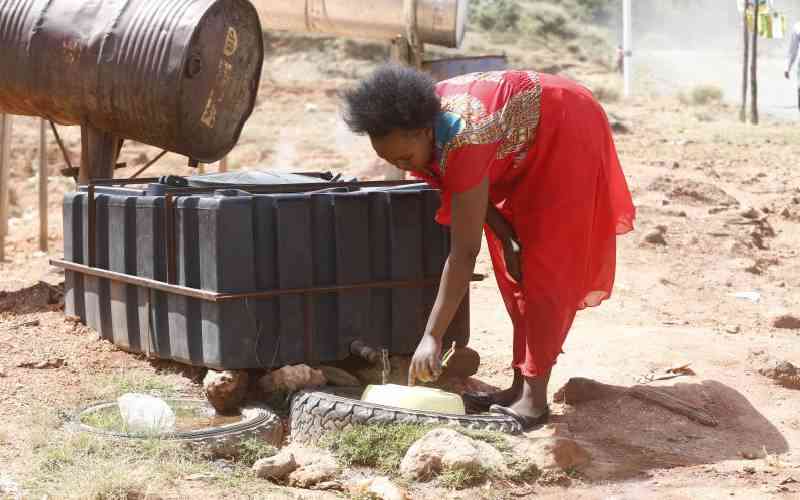×
The Standard e-Paper
Fearless, Trusted News

Groundwater forms the most important source of water supply in many urban, peri-urban and rural areas of Kenya, and generally in most Africa countries, sometimes requiring 100 per cent of the demand.
Inadequate planning and provision of basic services means that most inhabitants lack improved sanitation, making underlying aquifers vulnerable to pollution from human waste, among other factors.